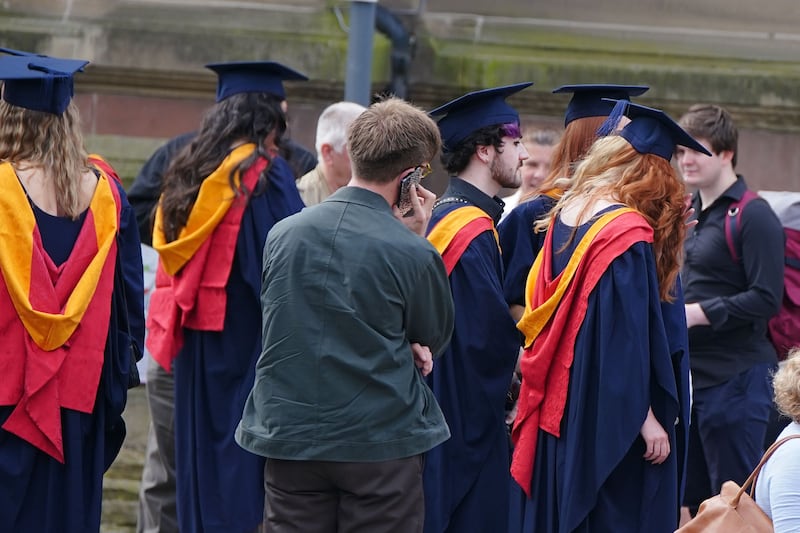GRADUATES of the most selective universities will earn almost £90,000 more over their working life those who do not study for degrees, a new report has found.
The study published by the Russell Group, which represents 24 top institutions including Oxford, Cambridge and Queen's University Belfast, examined the contributions these universities make to the economy.
A full-time UK student who started at a Russell Group university in 2015/16 and completed an undergraduate degree, it found, would take home £88,000 more, after tax and loan repayments, than someone who studied for A-levels, or equivalent qualifications, but did not go to higher education.
The London Economics study also found there was a clear gender gap - with men who graduated from one of these institutions earning significantly more than women. Among men alone in Britain and Northern Ireland, a "graduate premium" is £108,000, while for women it is £73,000.
It concluded there was a significant graduate premium attached to going to a selective institution - one that has high entry requirements.
Many courses at Queen's University demand straight A grades at A-level, including medicine and dentisty, while actuarial science requires A*AA plus another A in a fourth AS-level subject. Most others require A and B grades.
The study showed that the typical economic benefit, to the graduate and the taxpayer combined, from someone who started at a Russell Group university in 2015/16, was £177,000.
This took into account the extra money a graduate would pay in taxes and spending in general.
Russell Group chair Professor Sir Anton Muscatelli said: "This analysis shows undergraduates who started their courses at Russell Group universities in 2015 can expect a substantial earnings premium over the course of their career, with a typical net economic benefit per student of £177,000.
"Young people recognise that higher education is an investment in their future that will pay dividends long after they graduate. It is right that we look closely at how the system is funded, but we should never lose sight of that fact."
The report also found that the 166,000 UK Russell Group students who began their studies in 2015/16 will eventually contribute £20.7 billion to the UK economy in total, over their working lives.
In addition the report concluded that research carried out by these universities in 2015/15 would contribute £34.1bn to the UK economy. Queen's contributes more than £700 million to the Northern Ireland economy.
Sinn Féin's higher education spokeswoman Caoimhe Archibald said universities made a significant and important contribution to the economy.
"Research alone will contribute £34.1bn through helping to develop new technologies and driving innovation," she said.
"This is important in the context of the debate about the role of universities and how they are funded. It is also a reminder of the importance of ensuring institutions have access to research and innovation funding and can continue to collaborate effectively with EU partners amid the debacle of the Brexit negotiations."








